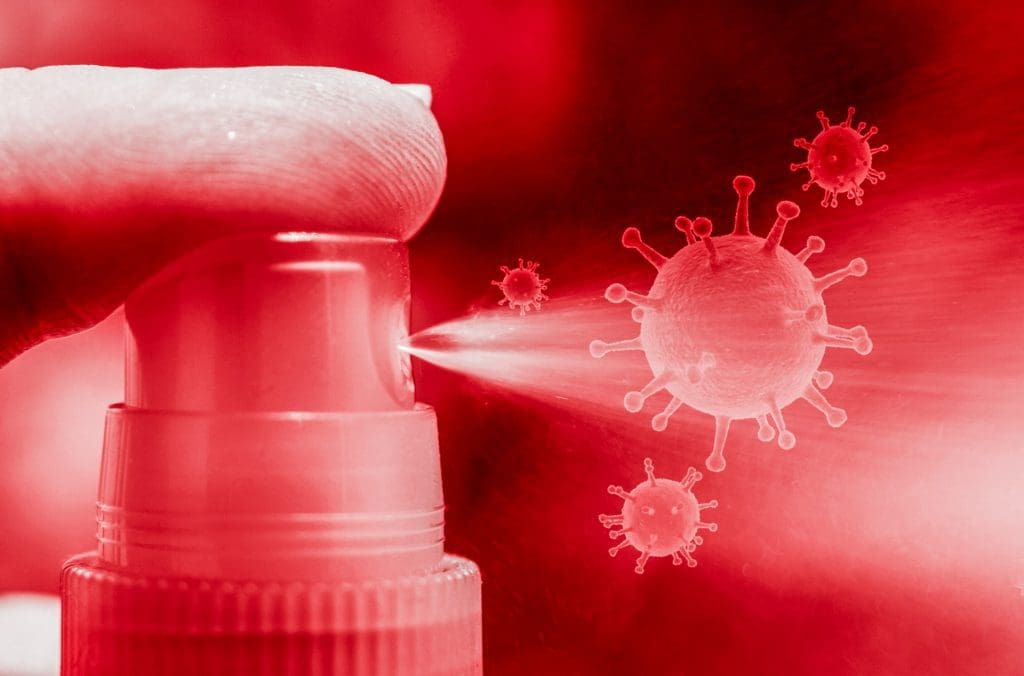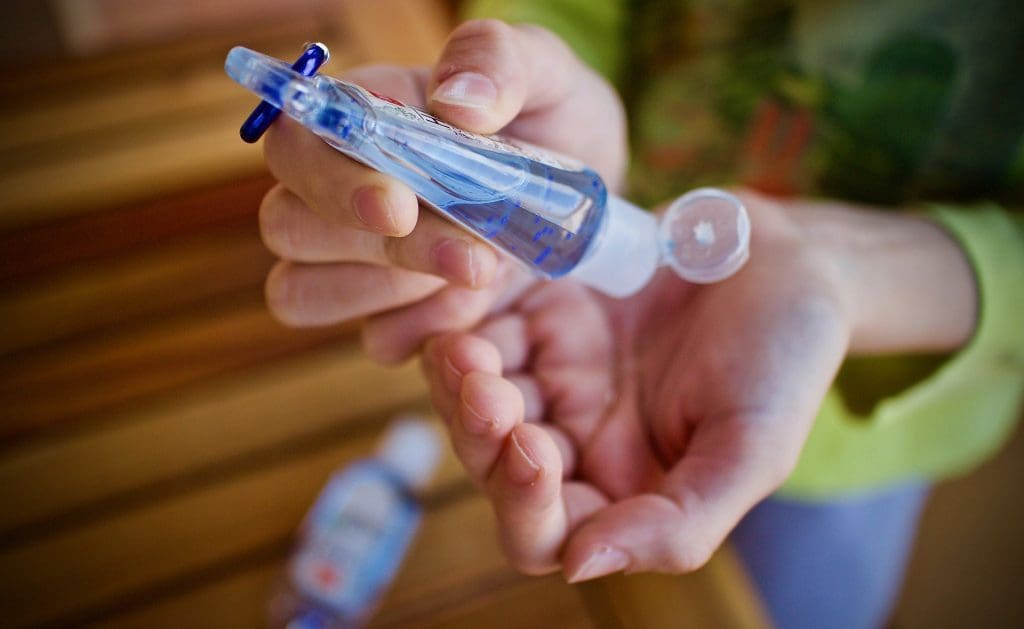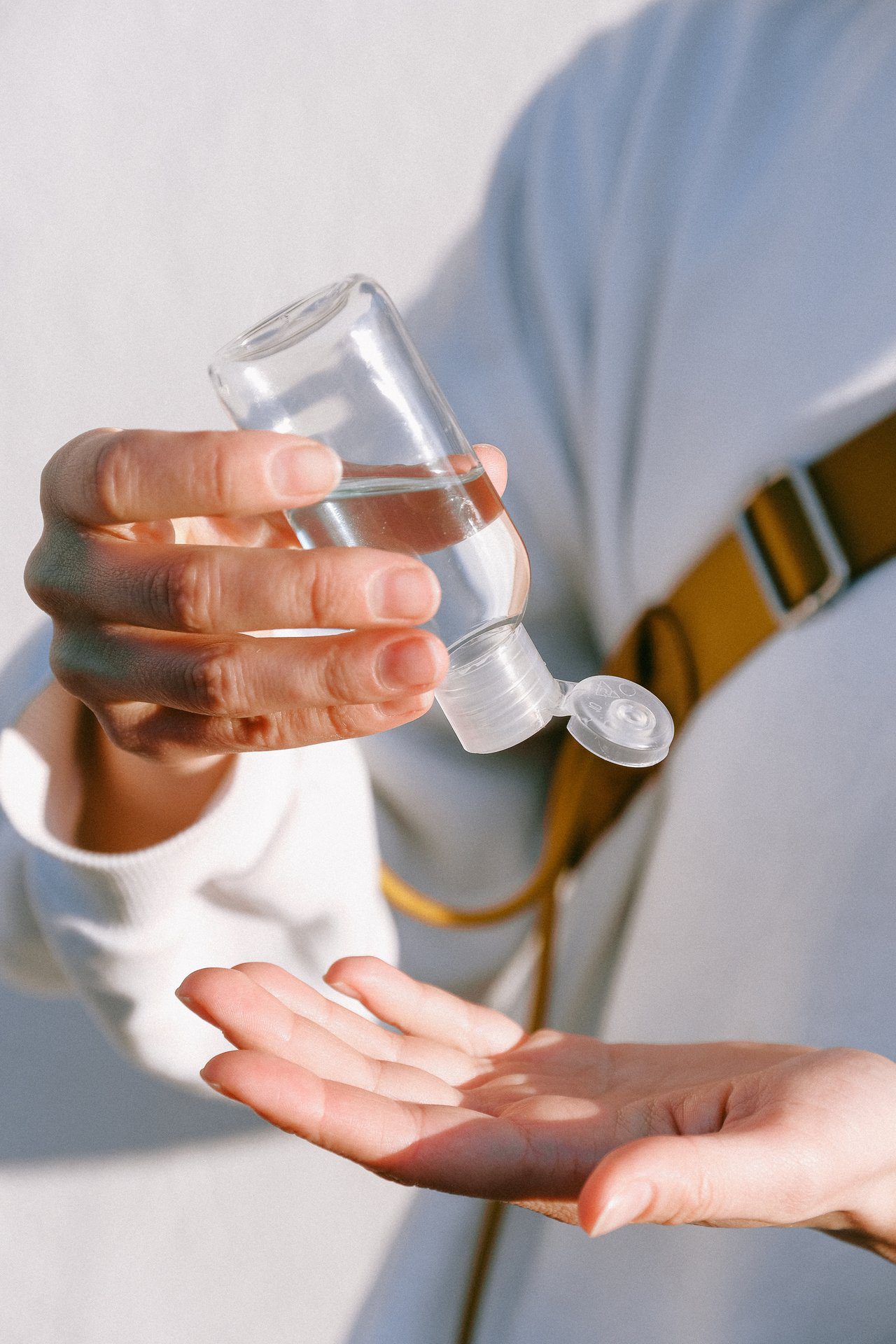As more and more cases of the novel coronavirus keep cropping up around Canada, many us wonder what we can do to protect ourselves and others from infection. Hand sanitizers were initially considered an item of convenience but have now become a staple among our daily accessories.
Proper hand hygiene is one of the measures recommended by the Centers for Disease Control and Prevention (CDC) to avoid infection during the coronavirus pandemic. But how are the two related?
One of the ways Covid-19 spreads from person to person is through direct contact. When an uninfected person touches a contaminated surface or shakes hands with the virus carrier and the uninfected proceeds to touch their face, they could get infected by the disease.
Although soap and running water are the most effective in cleaning hands, using an alcohol-based hand sanitizer is a great alternative, especially when you cannot access a sink or a sanitizing station to clean your hands.
So, what is the science behind how hand sanitizer helps prevent Covid-19 transmission?
Table of Contents
What Is Hand Sanitizer

Hand sanitizer, or hand antiseptic, is a disinfectant applied to the hands to kill off bacteria and pathogens. They usually come in either liquid or gel form and are usually in pocket-friendly packaging that makes them easy to carry around.
Depending on the primary ingredient used during manufacture, hand sanitizers can either be categorized as alcohol-free or alcohol-based. Alcohol-free hand sanitizers are made using antimicrobial agents like triclosan or disinfectants like benzalkonium chloride.
However, the use of alcohol-free hand sanitizer is not recommended by the WHO. Instead, the international health governing body has insisted that people use alcohol-based hand sanitizer because of their alcohol content, which denatures disease-causing bacteria’s proteins.
Alcohol-based hand sanitizers usually contain between 65 to 95% alcohol content. Ethanol and isopropanol are the two main alcohol compounds used in most brands of hand sanitizer.
Effectiveness of Hand Sanitizer
We’ve highlighted this above but how vital hand sanitizer is in fighting the spread of Covid-19 makes it ever so important to reiterate how convenient hand sanitizer is, especially when you can’t clean your hands with soap or water. So how does it work?
Covid-19 is what scientists describe as an enveloped virus. Fortunately, enveloped viruses are easy to kill, according to the Environmental Protection Agency (EPA).
Enveloped viruses, such as the coronavirus, wrap themselves in a layer of proteins as a means of protection. This means that its RNA (its genetic material) is coated by a fatty (lipid) layer. But when they leave the cells they’ve infected, the viruses engulf themselves in a coat made of fat they’ve extracted off of the cells.
These fatty layers are held together by hydrophobic interactions and hydrogen bonds. When an alcohol-based hand sanitizer is introduced, the alcohol content dissolves the fatty membranes, thus destroying the molecular interactions, causing the virus to collapse, thus preventing it from binding to our cells.
However, to achieve this, you need hand sanitizer with an alcohol content exceeding 60% recommended by the CDC.
How to Use Hand Sanitizer Effectively

For an alcohol-based hand sanitizer to be effective, it has to be used in the right way. Below is a breakdown of several steps on how you should go about it.
Start by freeing your hands off any objects or jewelry that may hinder you from sanitizing your hands. Make sure you apply enough of the product to the palm of your hand such that your hands are completely wet.
Rub your hands against each other for up to 25 seconds until they become dry. Make sure you’ve covered all surfaces from the back of your hand to in between the fingers. Some hand sanitizers have glycerin included to prevent your skin from feeling too dry after use, so this is something you should look at when shopping for sanitizer.
However, for hand sanitizer to be effective, your hands should not be soiled or greasy. Hand sanitizer is a disinfectant and not a cleaning agent. If your hands are oily, muddy, or are contaminated with chemicals such as pesticides, using hand sanitizer will not be effective. For this, you need to clean your hands with soap and water.
Are There Any Drawbacks To Using Hand Sanitizer
As easy and effective as it is to use, hand sanitizer is not without its limitations, more so alcohol-based hand sanitizer.
For starters, the alcohol content kills harmful bacteria but did you know that you have good bacteria? Hand sanitizer kills all kinds of bacteria, including the good kind, which helps protect you against bad bacteria. This could result in you having a weaker immune system.
There’s also the danger of alcohol poisoning. The alcohol content in hand sanitizer is a lot more potent than making alcoholic beverages. A few squirts of hand sanitizer could mirror several shots of hard liquor. As a precautionary measure, people with children need to store their hand sanitizer far from kids’ reach.
Another concern people have involving the use of alcohol-based hand sanitizers is their propensity to flammability. Alcohol-based hand sanitizers are categorized as a Class 1 flammable liquid substance. This means their flash point is less than 100° Fahrenheit.
Some people have reported that using hand sanitizer has left their skin feeling chapped, dry, and itchy. This is because too much hand sanitizer can wash away the natural oils on your skin.
It’s Important to Keep Hand Sanitizer Close At All TImes

During this era of Covid-19, it is vital that you have an alcohol-based hand sanitizer close with you both in public and in your home. It could mean the difference between infection and prevention.
Make sure you store your hand sanitizer well far from the reach of kids. However, if you feel they are responsible enough, you can educate them on the importance of hand sanitizer in the fight against the coronavirus and its dangers.
Remember, hand sanitizer should only be used as an alternative when you can’t find a sink to clean your hands. Cleaning your hands with soap and water is the most effective strategy against the spread of the coronavirus.
Featured Photo by Anna Shvets from Pexels




